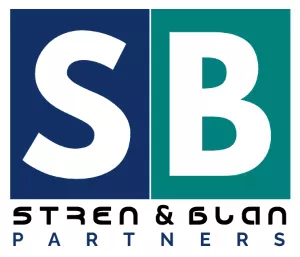INTRODUCTION
On 28th June, 2024, President Bola Tinubu signed an Executive Order introducing zero tariffs, excise duties, and VAT on imported pharmaceuticals to revitalise Nigeria's Health Sector. This decision is part of the Presidential Value Chain Initiative for the healthcare sector launched in October 2023, and it represents a significant step toward increasing local healthcare production and reducing the rising costs of essential medical supplies. The Executive Order is expected to play a critical role in unlocking Nigeria's healthcare value chain, and increasing the country's ability to produce medicines, diagnostics, medical equipment, and other important healthcare items.
WHAT DOES THE EXECUTIVE ORDER ENTAIL?
By introducing zero tariffs, excise duties, and VAT on specified machinery, equipment, and raw materials essential for the healthcare sector, the Executive Order aims to eliminate financial barriers that have historically hindered the growth of the healthcare and pharmaceutical sector in Nigeria. It also creates market-shaping mechanisms such as framework contracts and volume guarantee to support local manufacturers. This would increase local production of healthcare products, reduce costs, boost competitiveness, and improve access to essential healthcare products.
To ensure effective implementation, the Executive Order mandates the involvement and coordinated effort of various government bodies. The Minister of Justice and Attorney General of the Federation, Prince Lateef Fagbemi SAN, is tasked with codifying the new Order, whilst the Minister of Health and the Minister of Finance, Industry, Trade, and Investment are charged with developing a unified implementation framework. This framework would speed up regulatory approvals and minimize bureaucratic bottlenecks. Key agencies, including the Nigeria Customs Service (NCS), National Agency for Food and Drug Administration and Control (NAFDAC), Standard Organisation of Nigeria (SON), and Federal Inland Revenue Service (FIRS), are tasked with ensuring the swift implementation of the Order, with special waivers and exemptions effective for two years.
PRODUCTS COVERED UNDER THE ORDER
The Executive Order targets a wide range of pharmaceutical supplies and essential raw materials crucial to producing vital healthcare products. Key items covered by the Order include:
Active Pharmaceutical Ingredients (APIs): Fundamental components which are essential for manufacturing various drugs.
Excipients: Substances formulated alongside the active ingredient of a medication to improve its delivery.
Medical Devices: Products such as syringes, needles, and diagnostics tools. Biologicals: Products derived from living organisms, used in the prevention, diagnosis, or treatment of diseases.
Medical Textiles: Items like bandages and other textilebased medical supplies.
Long-lasting Insecticidal Nets (LLINs): Crucial for malaria prevention.
Rapid Diagnostic Kits: Essential for quick and accurate disease diagnosis.
IMPLICATIONS OF THE EXECUTIVE ORDER
Cost Reduction and Affordability: Currently, healthcare providers, drug distribution businesses and pharmaceutical manufacturers in Nigeria face significant customs levies ranging from 5 to 25 percent on the import of essential medical commodities and raw materials. The Executive Order has the potential to reduce production costs by removing the VAT and import duties. This removal can potentially lead to lower and affordable prices for essential medicines and medical services, directly benefiting patients who struggle with high healthcare costs.
Promotion of Local Production and Industry Growth: Nigerian pharmaceutical manufacturers face challenges in cost competitiveness due to high import duties on essential inputs such as syringes (65% import adjustment tax), respiratory systems (5% import duty), and pharmaceutical packaging materials (25% import duty). The Executive Order's exemption of these tariffs may encourage local production and lessen reliance on imports, boosting industry growth and creating job opportunities in the healthcare sector.
Improved Access to Healthcare Products: Medical products, including respiratory support systems and imaging devices, are currently subject to import taxes despite being essential. The Executive Order's elimination of these taxes can increase access to innovative medical technologies, enhancing diagnostic and treatment capabilities across Nigerian healthcare facilities.
CONCLUSION
President Bola Ahmed Tinubu's Executive Order introducing zero tariffs, excise duties, and VAT on imported pharmaceutical inputs marks a transformative shift for Nigeria's Health sector. Pharmaceutical manufacturers should seize this opportunity to invest in local production of medical products, reducing their reliance on imported goods. They must work closely with regulatory bodies to ensure timely approvals and maintain high-quality standards. Medical equipment suppliers can capitalize on the cost advantages resulting from reduced import duties to expand their product offerings or lower prices for hospitals and reach underserved markets, especially in rural areas.
For Government agencies, ensuring effective collaboration between the Nigerian Customs, NAFDAC, SON, and other relevant bodies is essential to streamline the implementation of the Executive Order and resolve any operational bottlenecks swiftly. Continuous monitoring and evaluation of the Order's impact are necessary to make informed adjustments and provide support to stakeholders.
Whilst President Tinubu's Executive Order offers a promising pathway to revitalizing Nigeria's healthcare sector, it requires strategic planning, robust implementation, and continuous evaluation to mitigate the associated risks and challenges. If successfully executed, this Policy could herald a new dawn for Nigeria's Health sector, promoting sustainable growth, improved healthcare access, and enhanced economic prosperity.
The content of this article is intended to provide a general guide to the subject matter. Specialist advice should be sought about your specific circumstances.


